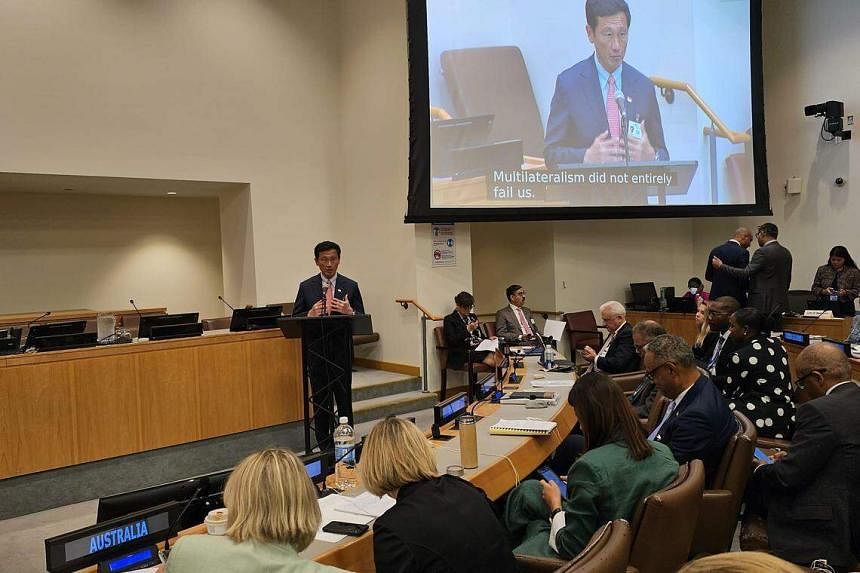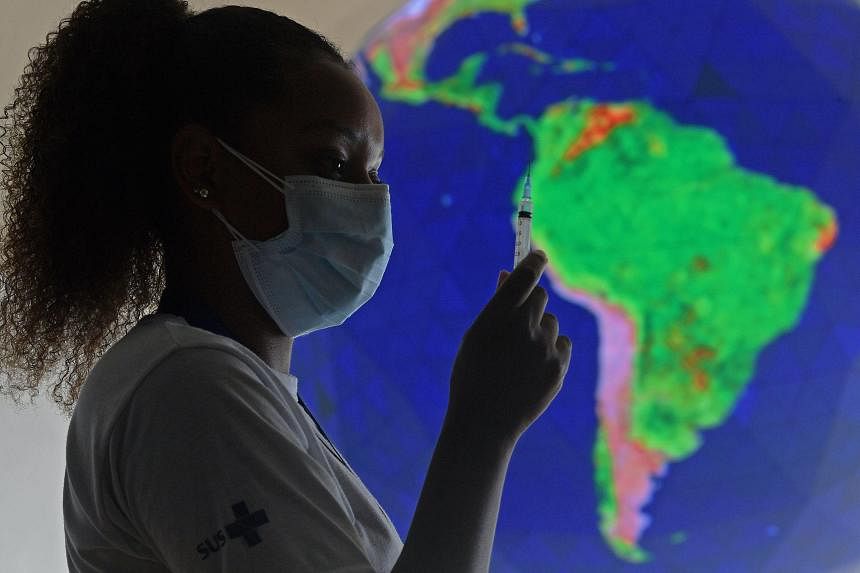NEW YORK – Responding to a pandemic is done collectively, with the community of nations as stakeholders, and the system requires sustainable and predictable funding to ensure the global commons work well, said Singapore Health Minister Ong Ye Kung.
Funding is necessary to develop and distribute vaccines equally, to have a globally networked surveillance system to detect and understand emerging infectious diseases, and to buffer primary healthcare.
Mr Ong was delivering his opening remarks as co-chair of the multi-stakeholder panel on pandemic prevention, preparedness and response on Wednesday at the 78th United Nations General Assembly (UNGA) High-Level Meeting on universal health coverage.
As the world emerges from a devastating pandemic, he said there were approaches that worked, such as the sharing of genome sequencing data and rapid development of vaccines, and others that did not, like inadequate production capacity of vaccines and their uneven distribution, and the arbitrary closure of borders.
Funding is required in three key areas, Mr Ong said.
The first is to catalyse the development of vaccines and make sure they are accessible throughout the world, by upholding free and open trade in vaccine production and distribution.
“Attaining high vaccination rates is arguably the fastest route to socio-economic reopening, while preventing unnecessary deaths from severe diseases arising from pandemics. In this respect, we should all support the 100-day mission, and contribute to its strong global network of research institutions, vaccine manufacturers and regulators,” he said.
The 100-day mission is a goal designated by the British government and the Coalition for Epidemic Preparedness Innovations to explore a proposed response to the next Disease X by making safe, effective vaccines, therapeutics and diagnostics within 100 days of identification.
The second area is a globally networked surveillance system for emerging infectious diseases.
It is imperative that all countries contribute data for pathogens with epidemic and pandemic potential, said Mr Ong.
There is already a practical platform in the Global Initiative on Sharing All Influenza Data, which was established in 2008 to provide access to genomic data of influenza viruses.
“It has struck a good balance between protecting the interests of data generators and facilitating timely public accessibility. We should support and improve the platform,” added Mr Ong.
In addition, strengthening primary healthcare is the cornerstone of pandemic prevention, preparedness and response.
“Outbreaks begin and end at the local level. Good primary care provides assurance to our people. Detection of threatening pathogens begins also at the primary care level. By individually strengthening our primary care, we can do our part as global citizens to improve early detection, management and containment of pandemics,” the minister said.
Separately, he provided a different perspective on strengthening universal health coverage when he delivered Singapore’s national statement at the UNGA High-Level Meeting on Thursday.
“The health and well-being of our population is at a pivotal, yet precarious moment. Asia, including Singapore, is ageing quite rapidly. With old age comes sickness, the cumulative impact of which is rising disease burden on our healthcare system,” he said.

Mr Ong noted that the shifting demography exposes a critical flaw in many healthcare systems around the world as they are designed for sick care, rather than healthcare. He said healthcare systems need to be reorganised to build health outside of hospitals, and to support the aged to live healthily in communities.
“That is why in Singapore, we are transforming healthcare. We are mobilising family doctors, we are mobilising community care, we are establishing a network of aged care centres around the island to build social circles around the aged,” he added.
While ageing is probably the most significant social development in many countries, raising questions of sustainability in finance and healthcare provision, and retirement adequacy, Mr Ong said “the one big silver bullet to ageing is to make our population healthier, so that when you are 65, you can still be considered young”.
“With lifespans getting longer, this is not an unreasonable ambition,” he added.


